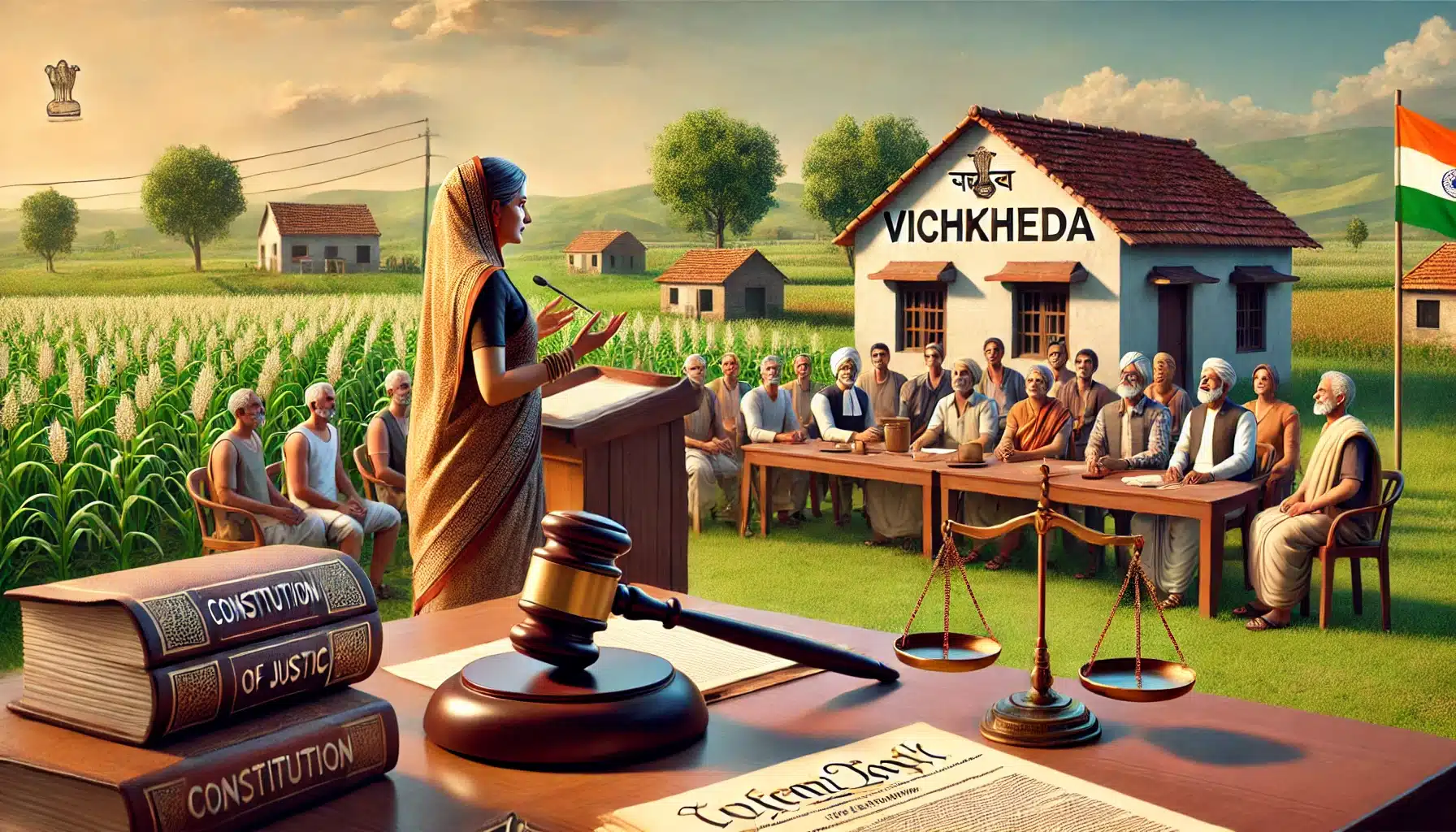The Supreme Court has reversed the disqualification of a female Sarpanch from Gram Panchayat, Vichkheda in Maharashtra, raising concerns over discriminatory treatment against women in rural governance. The Court emphasized the importance of handling the removal of elected representatives, especially

AI legal research and drafting tool
In a landmark ruling, the Supreme Court granted relief to a female Sarpanch from Gram Panchayat, Vichkheda, located in Jalgaon District of Maharashtra, who had been disqualified on technical grounds. The Court expressed deep concern over the discriminatory attitudes that continue to persist against women representatives at various levels of administration, particularly in rural areas. Emphasizing the significance of fair treatment in such matters, the Courthighlighted that the removal of elected officials, especially women, should be addressed with due seriousness and without bias.
The bench, comprising Justices Surya Kant and Ujjal Bhuyan, overturned the decision of the Collector, the Divisional Commissioner, and the High Court, who had previously upheld the Sarpanch’s disqualification. The Supreme Court’sobservations point to a larger issue of gender bias in rural governance, urging authorities to adopt a more sensitive approach in handling cases involving women in leadership positions.
Concerns Over Discrimination:
- The Supreme Court criticized the prevailing discriminatory attitudes in rural administration, noting that such biases are especially concerning when directed at women representatives elected through reservation quotas.
- The Court remarked, “This is all the more concerning when the representative in question is a woman and elected in the reservation quota, thereby indicating a systemic pattern of prejudicial treatment, permeating through all levels of administrative functioning.”
Background of the Case:
- The case centered around the Sarpanch of Vichkheda village, who faced disqualification after villagers filed a complaint alleging that she resided with her mother-in-law on government land.
- The Collector disqualified her without thoroughly verifying the allegations, a decision that was later upheld by the Divisional Commissioner and the High Court.
- The Supreme Court overturned these decisions, highlighting the casual approach of the authorities in summarily removing an elected representative.
Discrimination in Rural Leadership:
- The Court opined that the village residents likely struggled to accept a woman as their Sarpanch, finding it challenging to follow her directives and acknowledge her authority.
- It observed that an orchestrated effort had been made to remove her, reflecting an unwillingness to accept a woman leader in a traditionally male-dominated role.
Observations on Gender Bias:
- The Supreme Court noted that incidents of discriminatory treatment towards women in rural governance were “unfortunately a norm,” even as the country strives toward gender parity and women’s empowerment.
- It remarked that such prejudiced actions undermine the progressive goals that India is attempting to achieve in terms of adequate women representation in elected bodies.
- The bench stated, “This scenario gets further exacerbated when we as a country are attempting to realize the progressive goal of gender parity and women empowerment across all spheres, including public offices.”
Court’s View on Disproportionate Action:
- The Court emphasized that the punishment of removal from the position of Sarpanch was disproportionate to the allegations against her.
- It highlighted that the removal of an elected public representative should be treated with seriousness, especially when it involves women from rural backgrounds who have faced significant struggles to achieve their positions.
- The Court stated, “In our considered view, the nature of allegations and the consequential punishment awarded to the appellant, namely, her removal from the office of Sarpanch, is highly disproportionate.”
Call for Sensitivity in Governance:
- The Supreme Court urged authorities to adopt a more sensitive approach when dealing with women representatives in rural governance.
- It stated that these women should be provided with a congenial environment to demonstrate their capabilities as Sarpanch.
- The bench emphasized the role of society in supporting these women, noting that “our constitution will protect her interest. Moreover, it is the duty of the society to support her. No religious belief is above the constitution and the constitution is supreme.”
Decision and Directions:
- The Supreme Court allowed the appeal, setting aside the previous decisions of the Collector, Divisional Commissioner, and High Court.
- It directed the concerned authorities to ensure that such cases are handled with due diligence and respect for women’s rights.
- The judgment reflects the Court’s commitment to ensuring gender equality and fair treatment for women in leadership roles.
Click to Read: MANISHA RAVINDRA PANPATIL VERSUS THE STATE OF MAHARASHTRA & ORS.





